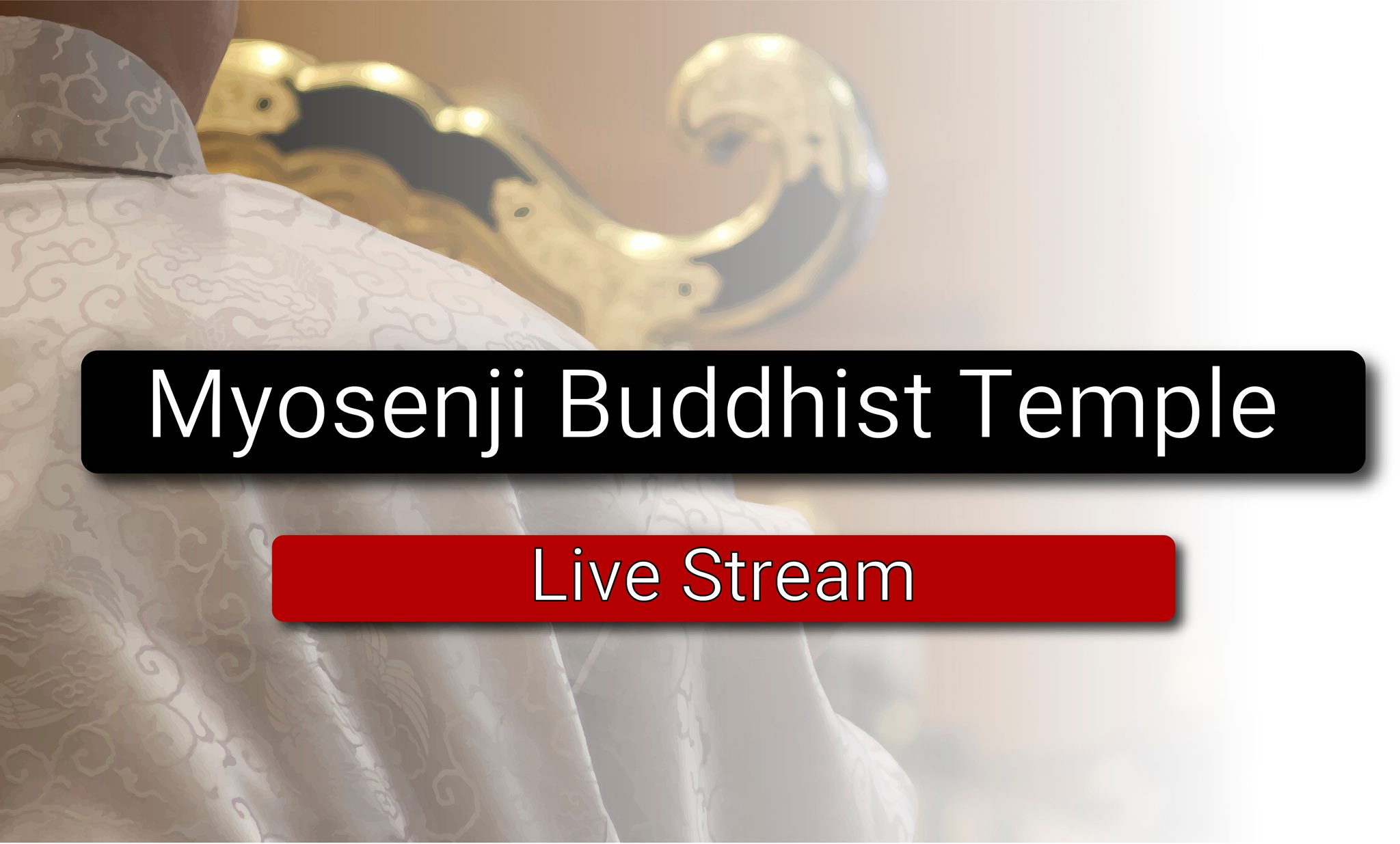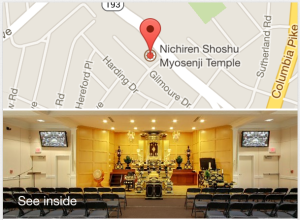Note: The Live stream player will only appear when we are holding Memorial Ceremonies requested to be live streamed by the family.
Memorial services and ceremonies are very important in Nichiren Shoshu Buddhism.
Here are the basic practices for the deceased that each Nichiren Shoshu Buddhist observes:
During our morning and evening prayers (called Gongyo) we recite the Sutra. Twice a day, in the fifth prayer, we do memorial prayers for our deceased relatives, all deceased Nichiren Shoshu believers, and all others who have departed this life so they may attain Buddhahood through the power of Nam Myoho Renge Kyo.
Nichiren Shoshu believers offer toba memorial tablets for the benefit of the deceased. The word “toba” is Japanese for the word stupa in Sanskrit. The original form of a stupa in ancient India was that of a burial mound. Many different forms of stupas developed over the years in both India and China. The five-story pagoda is one of the most commonly known forms of a stupa.
All Nichiren Shoshu Buddhist temples have a memorial book at the altar. Smaller versions are inscribed for lay believers by the Chief Priest of the local temple.
At Myosenji Temple, the third Sunday of the month, our Chief Priest conducts the Monthly Memorial service where members can offer Toba tablets for their loved ones and friends.
Finally, in Nichiren Shoshu, every July the Urabon Ceremony is conducted at each local Temple. Urabon is the ceremony for those who can no longer help themselves. Its purpose is to relieve their suffering by making an offering to the Buddha on their behalf. We send the benefits of enlightenment to the deceased to ease their present suffering and ensure that they may be reborn in a high life condition.

